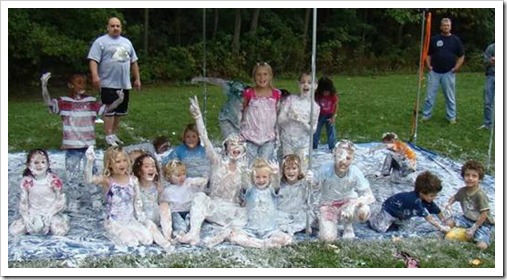
I have clients who are perfectionists and they know they are perfectionists. They have been to some form of counseling or have seen psychologists and they claim that things have become worse since they discovered their perfectionism. The label “Perfectionist” has allowed them to justify their behavior and that has increased the friction in their relationships even more.
Most of them came for life coaching when they reached rock bottom in their relationship due to their high demands when their wife, husband, girlfriend, boyfriend, friends, work colleagues or even boss said, “Get lost!” and kicked them out of the relationship or left them.
In the previous post on perfectionism, I wrote about ways to assess whether you or your children are perfectionists. In this chapter, I will give you some tips to help perfectionists. If you want to use them to help a child, remember that your goal is to plant those thoughts into your child’s mind or create circumstances that will help them overcome the fear that is associated with things not happening exactly the way they want them to.
- When they finish a puzzle, a block tower, a Lego building or anything that can be reassembled, make fun of wrecking it. It helps kids learn that Mom and Dad are not mad at them for it.
- Allow your kids to make a mess. You can have a place for mess – a sandpit outside, a table for finger painting. Let your kids play with their food. do you know how much fun it is to eat Jelly with your fingers? If you are worried, have a plastic sheet underneath the mess. Remember, everything can be wiped or washed in the dishwasher or washing machine, so is not worth fussing about it. If you cannot handle the mess, let someone else do it at first, and get involved gradually.

- Encourage kids to be involved in activities that are not competitive and are not graded or judged. Choose activities in which they are measured on progress relative to themselves or by working in a team and achieving something together. Better yet, choose activities that are all about fun, like going to the pool, exploring nature or playing at the playground.
- Give kids challenges without comparing them to others. If you are travelling to France and you give your child the task of finding 10 things you can do in Paris, it is a challenge, but the child cannot fail and there is nobody to compare with.
- Avoid using the word “should” like the plague. This gives a message that there is a right and a wrong way to say, do and be, and perfectionist children (and adults) add it to their vocabulary and fear every time they say, do, think or believe in something they “shouldn’t”. The word “should” implies there are some external, absolute standards they must obey, when the world is really about personal preferences.
- For the same reason, avoid using the words “have to”, “need to”, “ought to” and “must”. Instead, use “maybe you can”, “how about”, “can I suggest” or “it might be better to”.
- Teach your kids to start conversations with others. Go over “conversation starters” with them. A good way to start a conversation is by asking questions like “How was your holiday?”, “What did you do on the weekend?”, “I watched Harry Potter 7 on the weekend. Have you seen it?”, “It’s so hot today”, “It’s freezing cold today” and even “Would you like to play?”
The main idea is to find something you have in common with the person you start the conversation with and invite them into the conversation in a kind way. It is scary but possible.
I gave a group of kids at a leadership camp the task to gather personal information about others in the group (that they had met for first time) or the leaders of the camp so they could use it to start conversations with them. It is amazing how quickly you can teach kids to work up the courage to do it. It was easier for me because they did it in a group, everyone knew everyone else was having the same challenge and everybody could say, “Ronit told us”. It might take you longer than two days, but it is possible. - Change the order of the furniture in the house from time to time. Make it sound like you are exploring different ways of positioning things. Ask the perfectionist child for their opinion to make it easy to manage the change. Get them to help move things around themselves too.
- Create monitored surprises. Perfectionists do not like surprises, so work with them on it. First, tell them you want to make them a surprise a week before the surprise day. When things work well, tell them 5 days before, and slowly reduce the time to telling them a day before and eventually, surprise them totally. Gradual adjustment is the key.
- Play the game of “Three funny mistakes”. At dinnertime, every member of the family tells the rest of the family, in turn (do not start with the perfectionist), about three mistakes they have made during the day as a funny story.

- When in competition, talk to your children about the losing kid or the losing team to make them realize that the losers have feelings too. Help them see that in most competitions, there are many more losers than winners, which makes them part of the majority.
- When your kids express expectations that are too high (of themselves or of others), help them realize that it is not realistic. Ask, “Do you know someone who gets perfect scores on all of their exams?”, “Do you think it’s possible to always, always, always be on time?” Emphasize the words “perfect”, “all” and “always” to help them recognize they expect the impossible.
- Put their accomplishments on display. Make a diary of accomplishments for them to use if they have doubts about their successes. Teach them to measure small achievements like making dinner, helping their siblings or meeting a challenge, successes that are self-rated or that requires kindness and not being perfect (we call them “emotional stretches”).
- Help them express their feelings or attach a feeling to their successes and challenges. Teach them to rate their emotions. When they say, “I feel like a failure”, ask, “On a scale of 1-10, how much?” At first, they will say 10, but after a while, they will understand they do not really feel the same and start noticing the difference in their feeling, which will help them recognize the fear that triggers their perfectionism.
- Agree on a signal with your child that tells them they are being perfectionists and could relax their expectations a bit.
- Celebrate with your children 90% or 80% scores on their exams, so they will not think that you expect them to score 100%.
- When you use behavioral management, do not use 100% as a point when they get a reward. If they need to clean the room, it does not have to be spotless for the room to be considered clean.

Competitions, scores and awards are stepping-stones on the long and exciting journey of life
I hope these tips will help you help your perfectionist child and if you need the help yourself, translate them into adult vocabulary and your own circumstances and make perfectionism a period in your life, not a lifestyle.
Happy parenting,
Ronit
This post is part of the series The Perfect Child:
- The Perfect Child: Is your kid a perfectionist?
- The Perfect Child: How to help perfectionist kids














